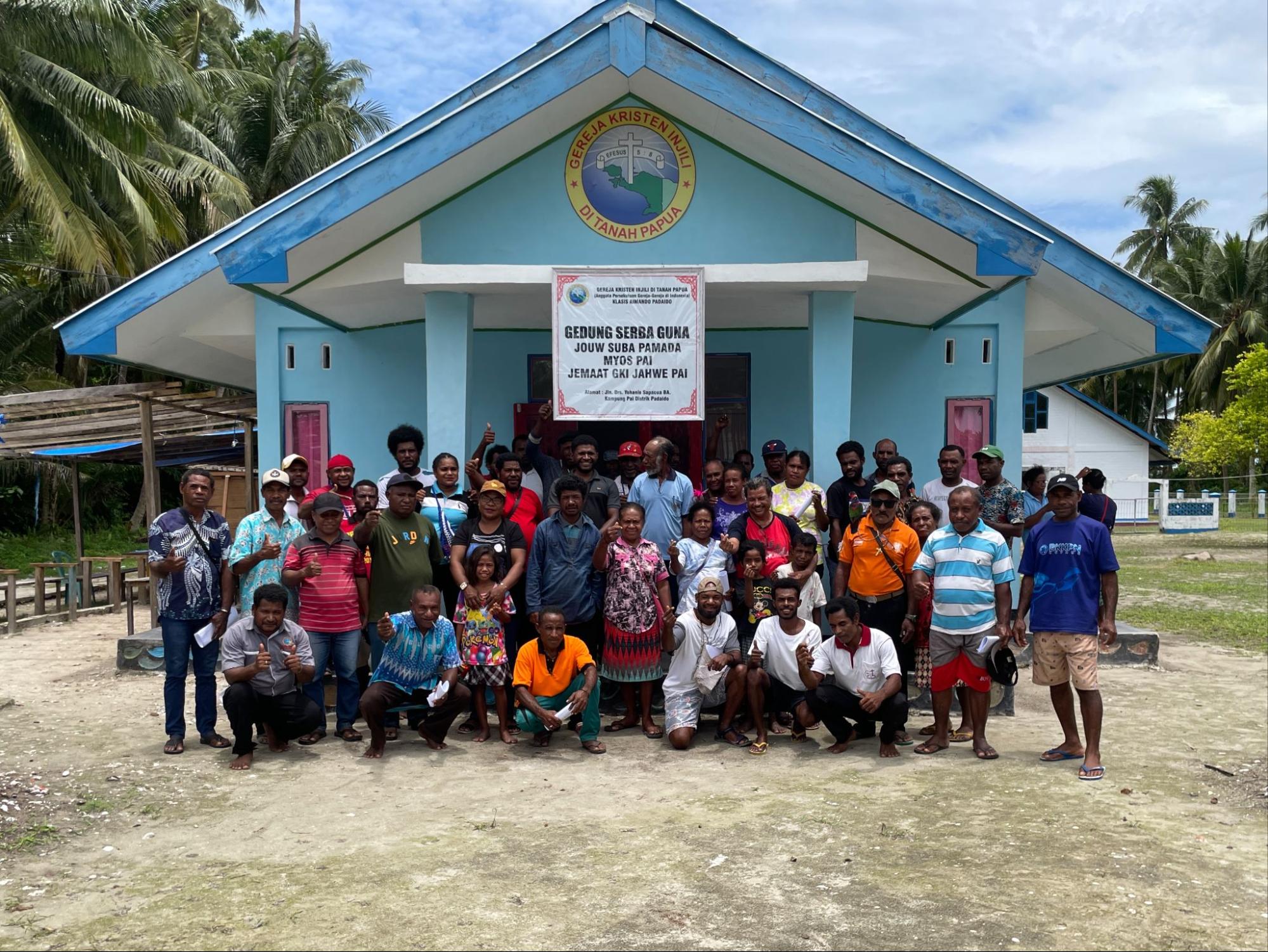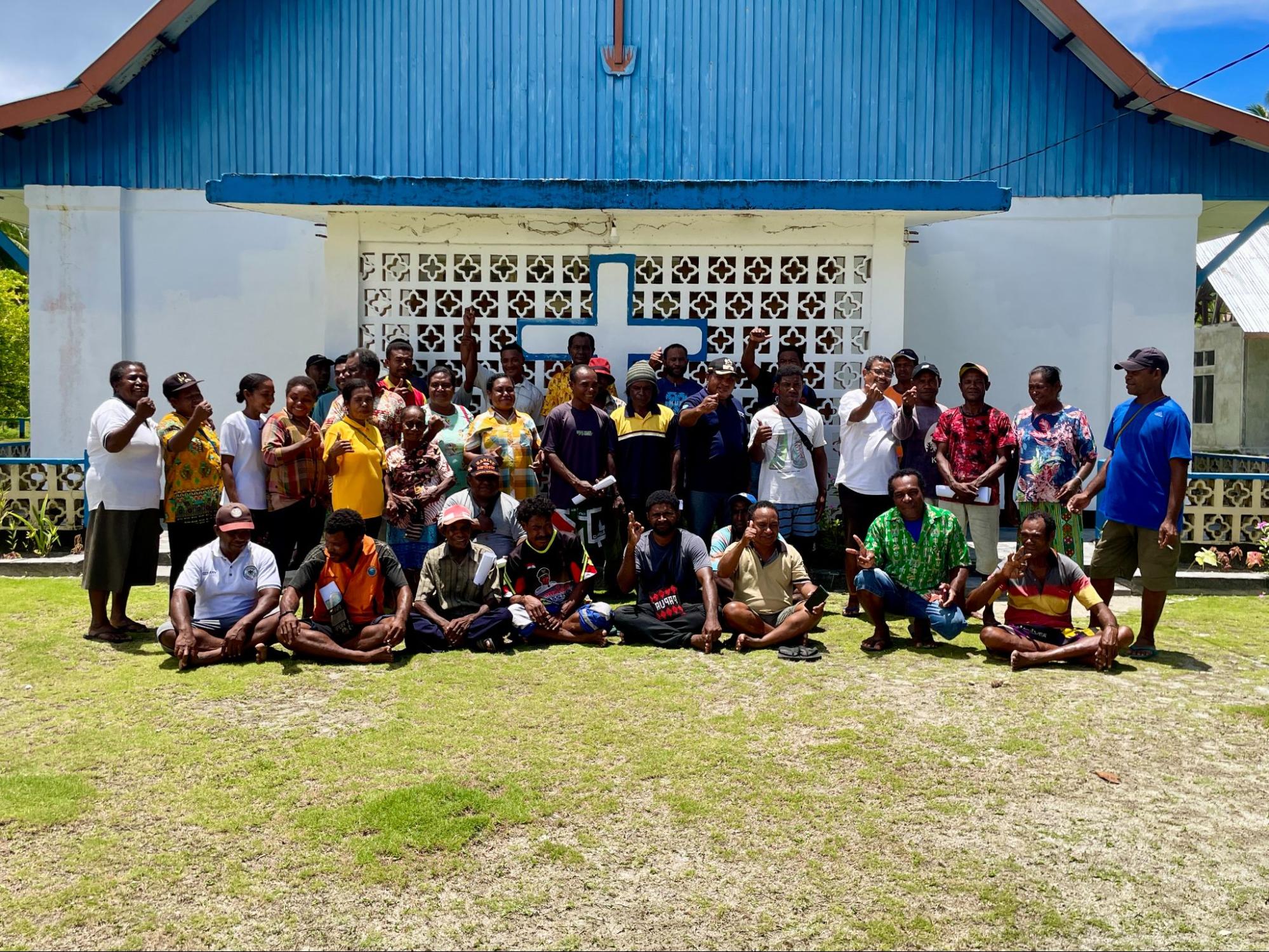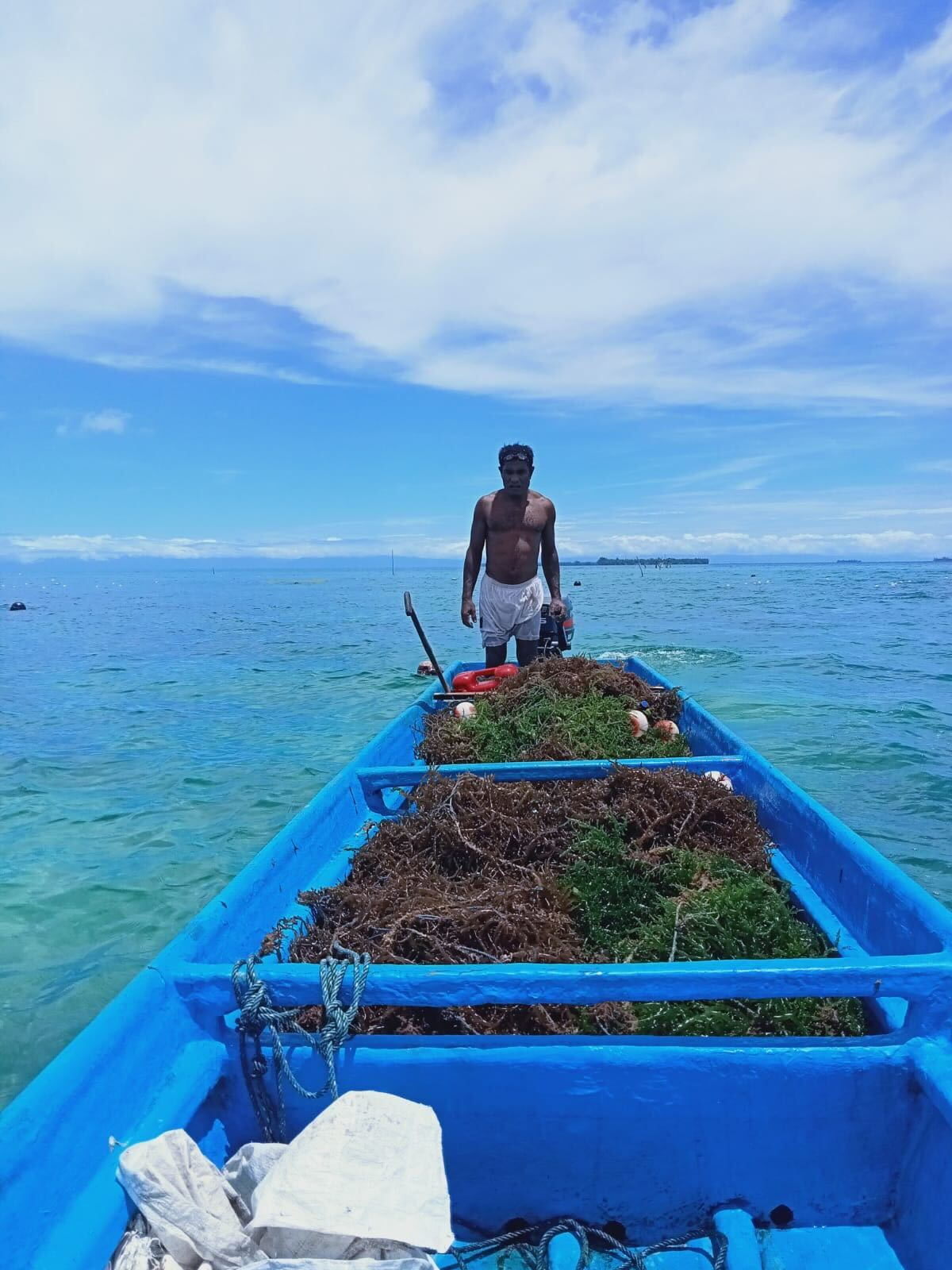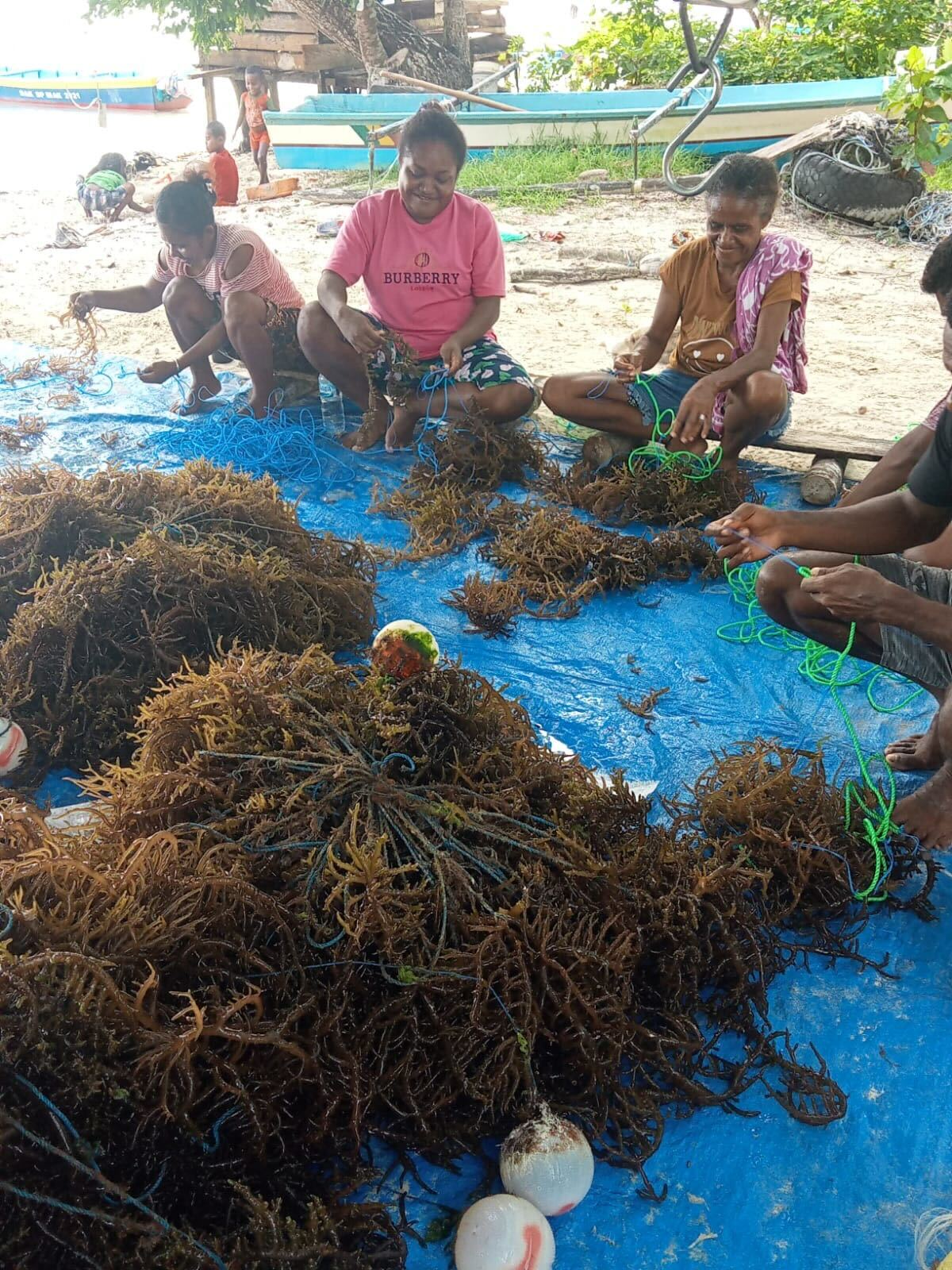In past years, a community of seaweed farmers on the small Pai and Manggwandi Islands in Biak, Papua Province, diligently tended to their seaweed crops. Despite steady production, seaweed in Biak has fetched relatively low prices due to high logistics costs. With limited access to markets, the local government was the sole purchaser, buying seaweed from the farmers for only Rp 5,000 per kilogram. The situation worsened in 2019, when the COVID-19 pandemic disrupted the market, leaving the farmers without buyers and forcing them to abandon their farms. This turn of events not only dismantled their seaweed farms but also deprived the farmers of something far more precious, hope.
With few options left, the farmers shifted their focus from seaweed cultivation to fishing to sustain their families. They also harvested coconuts from wild trees and planted vegetables on the islands, with women assisting in processing these crops. However, these activities proved insufficient to generate enough income for the farmers to meet their basic needs due to the high cost of living in Papua, pushing the community further into poverty.
Recognising the need for support, Kopernik, supported by the Ministry of Foreign Affairs (MoFA) Japan, began to work with the community to revive seaweed cultivation on Pai and Manggwandi islands aiming to improve economic stability for the small-scale farmers and their families.
Building Trust and Overcoming Challenges
Rebuilding seaweed cultivation as a pathway to improve livelihoods was initially met with scepticism and apprehension from the farmers, given their previous setbacks. During the Kopernik team’s first visit to Pai and Manggwandi Island in 2022, gaining the farmers’ trust to participate in the seaweed program required persistent and dedicated efforts.
Through several group discussions and regular visits to the island, the Kopernik team, and our local partner in Biak, sat together with the farmers, approaching them personally to understand their hopes, aspirations, and concerns. Market access emerged as a primary concern, which the Kopernik team addressed by outlining a strategy for seaweed cultivation and market access. Gradually, the farmers began to trust the initiative and agreed to participate in training programs and establish seaweed plots.
On Pai island, three groups were formed at the beginning of the project, led by Pak Adi, Pak Nico, and Pak Yonathan, who had lost their seaweed farms when COVID-19 hit. Similarly, two groups were formed in Manggwandi island. With these five groups, pre-harvest training began, introducing the farmers to seaweed cultivation techniques, from ensuring water quality and measuring plots, to planting seaweed seedlings.
 Seaweed cultivation training participants from Pai Island.
Seaweed cultivation training participants from Pai Island.
 Seaweed cultivation training participants from Manggwandi Island.
Seaweed cultivation training participants from Manggwandi Island.
Navigating Early Setbacks
The initial phase of the project was fraught with challenges. Shortly after planting the first batch of seaweed, the crops were struck by ‘ice-ice’ disease, which decimated the harvest. This disease occurs when the seaweed is stressed by changes in water temperature, salinity, or nutrient levels, causing parts of the plant to turn white and brittle, resembling ice. If not managed, it can significantly reduce growth, productivity, and eventually lead to the death of the seaweed, making it a major concern for farmers.
This setback was a significant blow to both the farmers and the Kopernik team, with only a few seaweed plants being saved. Witnessing the farmers' discouragement and loss of confidence was disheartening, but the failure provided crucial learning experiences and fostered stronger teamwork among the farmer groups to solve the problems. We learned that effective group management is crucial in preventing ice-ice disease in seaweed farms. Consequently, the Kopernik team switched from a hamlet-based group system to a familial-based one, which allowed group leaders to coordinate better with their members and proved to be more effective.
Additionally, together with Kopernik’s local partner, we continued to support the farmers, assisting them in replanting new seedlings. The team made several adjustments to the locations and cultivation methods, hoping for a successful harvest in the coming months. During this waiting period, the farmers and their families diligently maintained their seaweed farms, regularly cleaning them of plastic trash, sea moss and seagrass to ensure healthy growth.
A Milestone Achievement
The farmers’ persistence and patience were finally rewarded with significant results. In April this year, the farmers on Pai Island celebrated their first seaweed harvest in four years. This milestone marks a crucial turning point, demonstrating the potential of revitalized seaweed cultivation to improve livelihoods.
The success of the initial groups had a ripple effect, inspiring other farmers to join the program. By the end of the first year, three additional groups had formed on Pai island, bringing the total to six groups, each with four to six members. This expansion shows the growing confidence in seaweed farming as a sustainable and profitable venture for the community.
“We are pleased to see that the seaweed seedlings are starting to adapt to the waters around this island and are growing well.” said Adrianus Sabarofek, a seaweed farmer from Pai Island.“Even those in the community who did not participate in the initial training are now starting to express interest in planting 'agar' (the local term for seaweed). If there is a market in the future and we can see the economic benefits, surely everyone on this island will want to plant it," he added.
 Seaweed farmers on Pai Island bringing harvested seaweed for drying and replanting.
Seaweed farmers on Pai Island bringing harvested seaweed for drying and replanting.
Additionally, the seaweed cultivation initiative has created opportunities for women on the island to engage in seaweed processing, complementing their roles in fishing and coconut activities. This participation not only boosts their income but also fosters an inclusive ecosystem where women gain economic empowerment.
 Women in the community preparing seaweed seedlings for replanting.
Women in the community preparing seaweed seedlings for replanting.
Moving Forward: A More Sustainable Pathway
The initiative on Pai and Manggwandi Islands illustrates the power of resilience and adaptive strategies in community development. By continuously engaging with the farmers through training and discussions, we hope to lay the groundwork for sustainable seaweed farming, particularly in Biak, where challenges such as high logistics costs and low production remain prevalent.
The project seeks to enhance economic outcomes and also to restore hope and stability within the community. In the second year, Kopernik will continue to support the seaweed farmers and women on the island by expanding seaweed farms, constructing solar dryers to improve post-harvest processes, and training women to create value-added seaweed products such as noodles, pudding, and donuts. Additionally, we plan to connect Biak seaweed to potential buyers.
Through persistent efforts, innovative approaches, and strong community collaboration, there is hope that the seaweed farmers of Pai and Manggwandi Islands will improve livelihoods and build a more prosperous future.
This project is made possible through support from the Ministry of Foreign Affairs (MOFA) in Japan.


